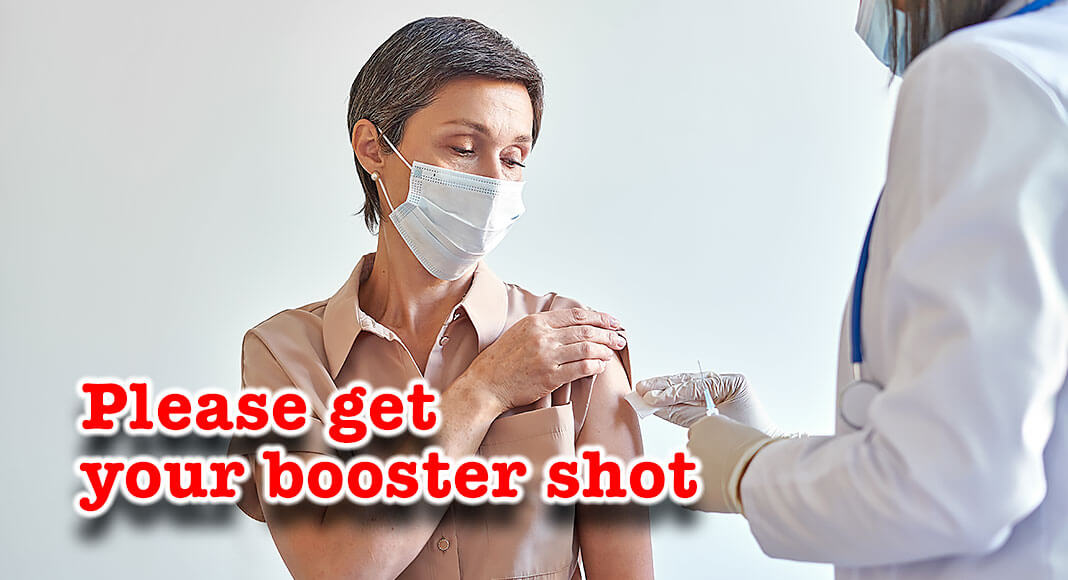
Mega Doctor News
By Albert Einstein College of Medicine
Newswise — BRONX, New York —Most cancer patients who had no measurable immune response after being fully vaccinated for COVID-19 were helped by a third vaccine dose, according to a new study by investigators at the Montefiore Einstein Cancer Center (MECC). The findings, published online yesterday in Cancer Cell, also show that a “booster” shot is extremely beneficial for all cancer patients, who face a heightened risk of severe disease and dying from COVID-19, and particularly in people who have a blood cancer.
“The speed of recommendations and treatments for COVID-19 has been incredible, but many questions have remained regarding the safety and necessity of booster shots,” said Lauren Shapiro, M.D., co-first author of the paper with Astha Thakkar, M.B.B.S, both third-year hematology/oncology fellows at Montefiore Medical Center and Albert Einstein College of Medicine. “Our research now gives data-driven answers about when vaccine protection from COVID-19 wanes for immunocompromised individuals and offers clear guidance about the necessity of vaccination for people with cancer.”
The study involved two groups of patients with cancer. The first was composed of 99 people who were fully vaccinated against COVID-19. They were tested after their initial vaccination for the presence of antiviral antibodies in their blood—the sign of an active immune response that would reduce their risk of severe disease and death from COVID-19. For most patients with detectable antibodies, their antibody levels declined when testing was repeated 4 to 6 months later.
The people in the second group, made up of 88 fully vaccinated patients with cancer, were also tested for the presence of antiviral antibodies in their blood. Sixty-four percent of them had detectable antibodies, while the remaining patients (all but one of whom had blood cancer) tested negative for antibodies. All participants—people with and without antibodies—then received a booster dose of a COVID-19 vaccine. Four weeks later, when their blood was again tested, 79.5% (70 out of 88 people) had antibody levels that were higher than before they received their booster shot. Most notably, 56% of cancer patients who previously had no detectable antibodies after standard vaccination now had them after receiving their booster shot.
“Our study demonstrates in clear terms how the booster shot can make all the difference for some people with compromised immune systems, such as people with cancer,” said Balazs Halmos, M.D., M.S., director of the Multidisciplinary Thoracic Oncology Program at Montefiore Health System, professor of medicine at Albert Einstein College of Medicine, and MECC associate director of clinical science. “As our care for cancer patients and vaccine guidelines evolve, we believe these findings underscore the continued benefit vaccines give to all our patients.” Dr. Halmos, along with Amit Verma, M.B.B.S., associate director for translational research at MECC and chief of the division of hemato-oncology in the department of oncology at Montefiore, are co-corresponding authors on the paper.
This study is the fourth from MECC investigators focusing on cancer patients and COVID-19. In a paper published in May 2020 in Cancer Discovery, they found that COVID-19 patients with blood cancers had significantly higher mortality rates compared with patients who had solid tumors. In a follow-up study published in March 2021 in Nature Cancer, they reported their findings on patients’ response to their initial COVID-19 infection. In June 2021, this team reported on cancer patients’ initial responses to COVID-19 vaccination in Cancer Cell.In this new study, participants who received the booster had an average age of 69 and were almost evenly split between men and women. Sixty-five percent had blood cancer and 35% had a solid tumor. Most participants, 70%, were vaccinated with the Pfizer-BioNTech vaccine, 25% with Moderna, and 5% with Johnson & Johnson. Approximately 36% of patients were Caucasian, 33% African American, 22% Hispanic, 8% Asian, and 1% bel










